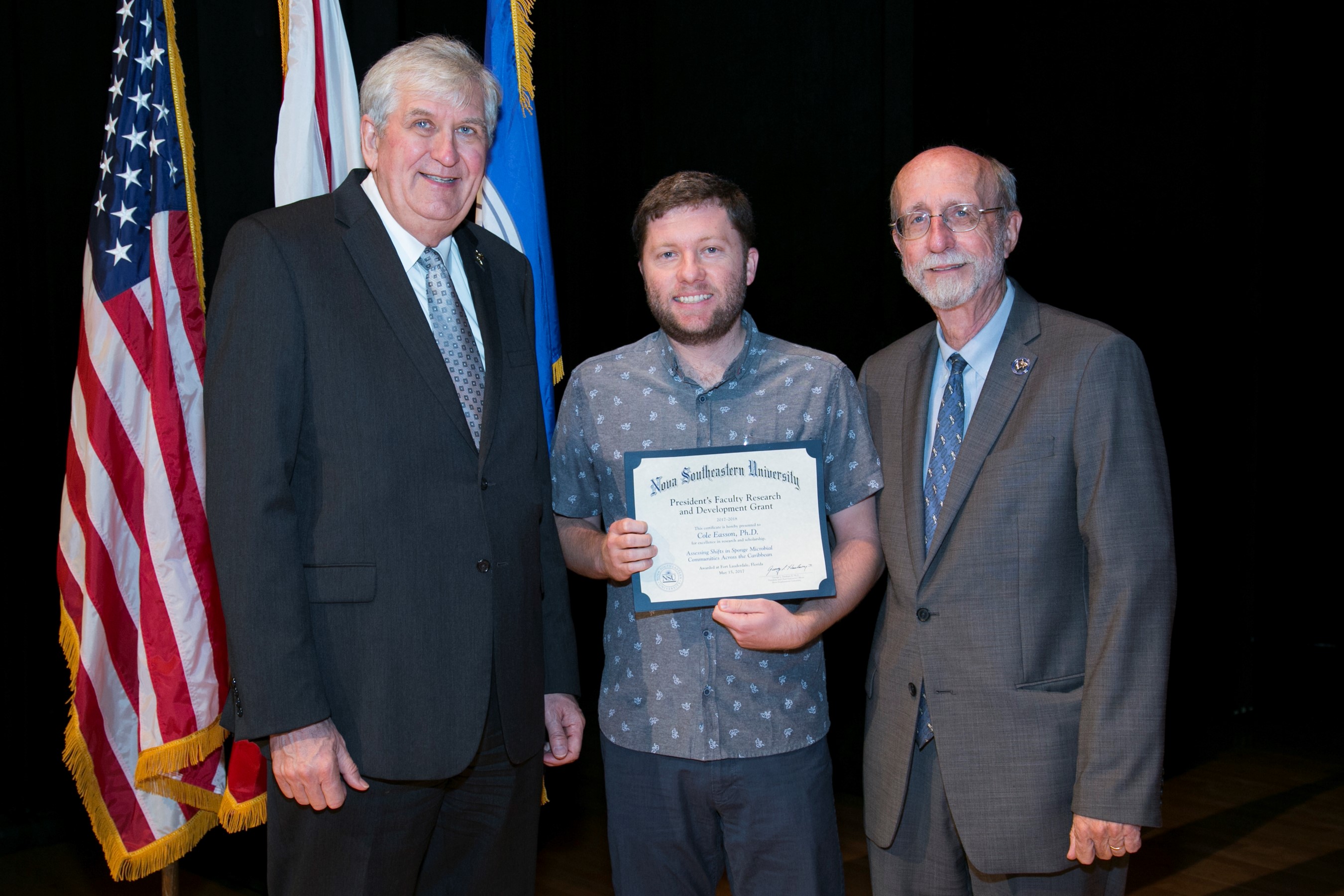Assessing Shifts in Sponge Microbial Communities Across the Caribbean
Grant Winners
- Cole Easson, Ph.D. – Halmos College of Oceanography and Natural Sciences
- Jose V. Lopez, Ph.D. – Halmos College of Oceanography and Natural Sciences
Dean
- Richard Dodge, Ph.D. – Halmos College of Oceanography and Natural Sciences
Abstract

Coral reef ecosystems are recognized as one of the most diverse and important ecosystems on earth. Even though they are often located in low-nutrient environments, coral reefs are incredibly productive, in large part due to microbial symbioses with important reef members. These symbioses are crucial for maintaining this high biodiversity through providing organisms with access to a wider range of nutritional sources that are often limiting nutrients in a habitat. Tropical marine ecosystems have undergone a dramatic decline over recent decades due to a diversity of natural and human-caused stressors. These changes have been well documented, especially for macro-organisms such as corals, but the impact of these stressors on microbial symbioses is poorly understood in most cases. This is particularly true for marine sponges, an increasingly dominant and important group of organisms within these ecosystems. Recent research that collected sponges from all across the Caribbean has shown that while sponge symbioses may shift over environmental gradients, they show minimal overlap within a single habitat. This research also found that Nitrogen (δ15N) values were conserved across host evolution in the Caribbean, suggesting that this resource may be an important driver in sponge symbiosis. Symbiotic microbes are a large part of what determines the niche of a sponge, especially δ15N, thus the observed variation in niches suggests that sponge microbial communities are shifting across these gradients. However, to date, this hypothesis has not been adequately tested, but the collected samples showing this niche variation provide an opportunity to do so. The goals of this proposal are to 1) provide an initial evaluation of how sponge microbial community diversity, composition, and function vary across natural and human-caused gradients and 2) to connect sponge microbial community variation to changes in ecological niches observed in sponges across these gradients. Furthermore, the results of the proposed research will be used to secure funding for further research into environmental influences on these important symbiotic relationships.